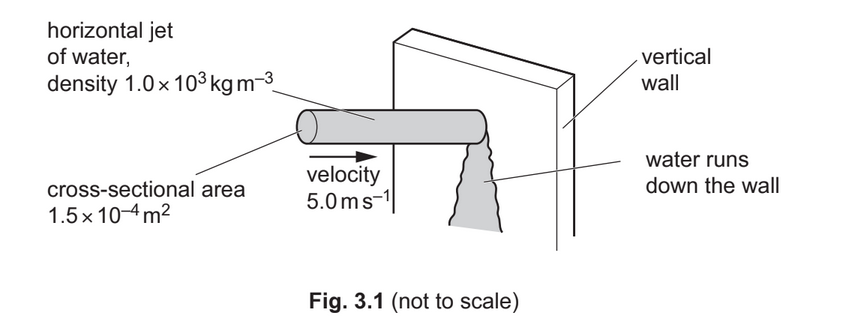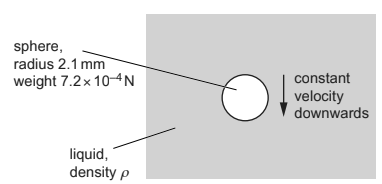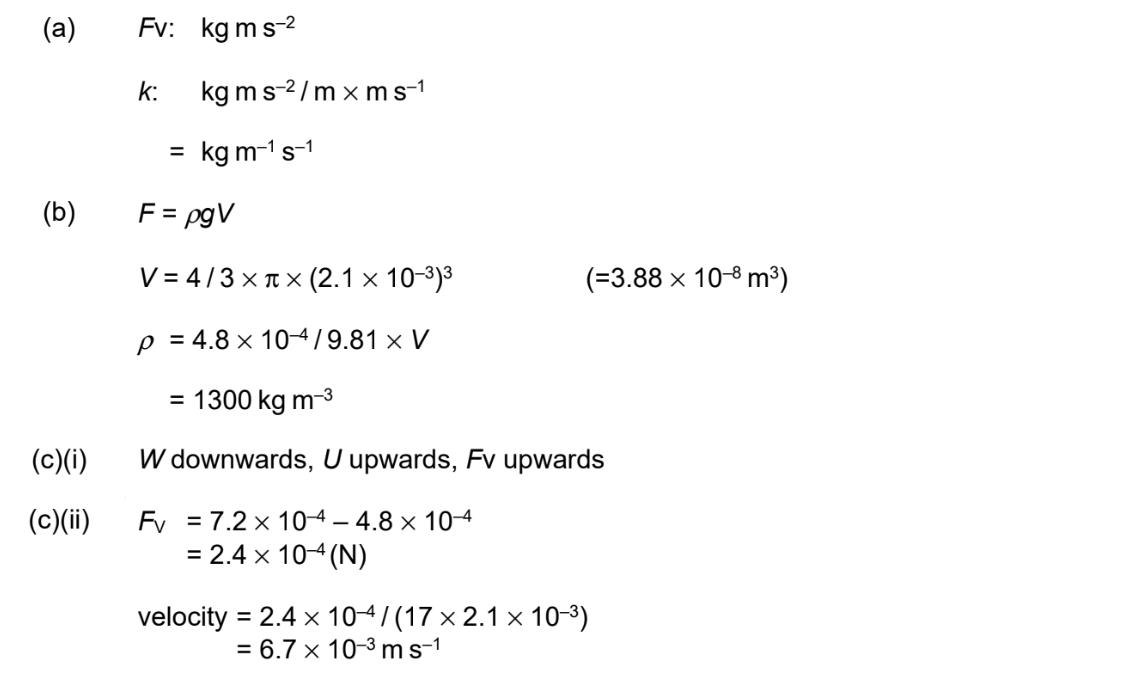Question
A jet of water hits a vertical wall at right angles, as shown in Fig. 3.1.

The water hits the vertical wall with a velocity of 5.0m/s in a horizontal direction. The cross-sectional area of the jet is \(1.5 \times 10^{–4}m^2\). The density of the water is \(1.0 \times 10^3 kg m^{–3}\).
The water runs down the wall after hitting it.
(a) Show that, over a time of 1.6s, the mass of water hitting the wall is 1.2kg.
[2]
(b) Calculate:
(i) the decrease in the horizontal momentum of the mass of water in (a) due to hitting the wall
decrease in momentum = ……………………………………………. Ns [1]
(ii) the magnitude of the horizontal force exerted on the water by the wall.
force = ……………………………………………… N [1]
(c) State and explain the magnitude of the horizontal force exerted on the wall by the water.
…………………………………………………………………………………………………………………………………
…………………………………………………………………………………………………………………………… [1]
(d) Calculate the pressure exerted on the wall by the water.
pressure = ……………………………………………. Pa [2]
[Total: 7]
Answer/Explanation
Ans:
(a) \((m =) \rho V\)
\(= 1.0 \times 10^3 \times 1.5 x 10^{-4} \times 5.0 \times 1.6 = 1.2 (kg)\)
(b)(i) \((\Delta )p = 1.2 \times 5.0\)
\(= 6.0 N s\)
(b)(ii) F = 6.0/1.6 or \(1.2 \times 5.0/1.6\)
= 3.8 N
(c) Newton’s third law applies (so) 3.8 N.
(d) p = F/A
\(= 3.8/1.5 \times 10^{-4}\)
\(= 2.5 \times 10^4 \)Pa
Question
A sphere of radius 2.1mm falls with terminal (constant) velocity through a liquid, as shown in Fig. 1.1.

Fig. 1.1
Three forces act on the moving sphere. The weight of the sphere is \(7.2\times 10^{-4}N\) and the upthrust acting on it is \(4.8\times 10^{-4}N\). The viscous force \(F_{V}\) acting on the sphere is given by
\(F_{V} = krv\)
where \(r\) is the radius of the sphere, \(v\) is its velocity and \(k\) is a constant. The value of \(k\) in SI units is \(17\).
(a) Determine the SI base units of \(k\).
(b) Use the value of the upthrust acting on the sphere to calculate the density \(ρ\) of the liquid.
(c) (i) On the sphere in Fig. 1.1, draw three arrows to show the directions of the weight W, the upthrust U and the viscous force \(F_{V}\). Label these arrows W, U and \(F_{V}\) respectively.
(ii) Determine the magnitude of the terminal (constant) velocity of the sphere.
Answer/Explanation
Ans:

